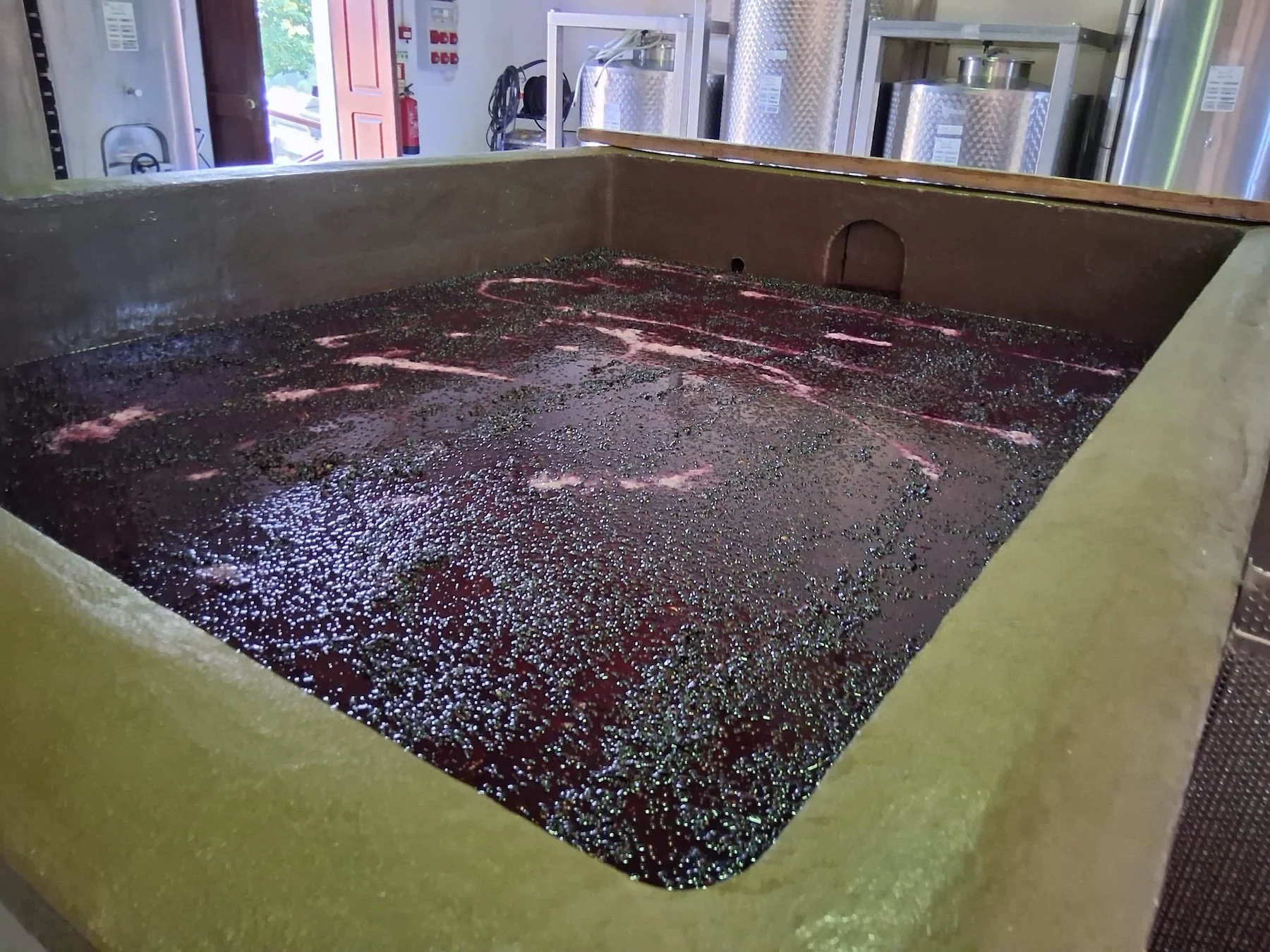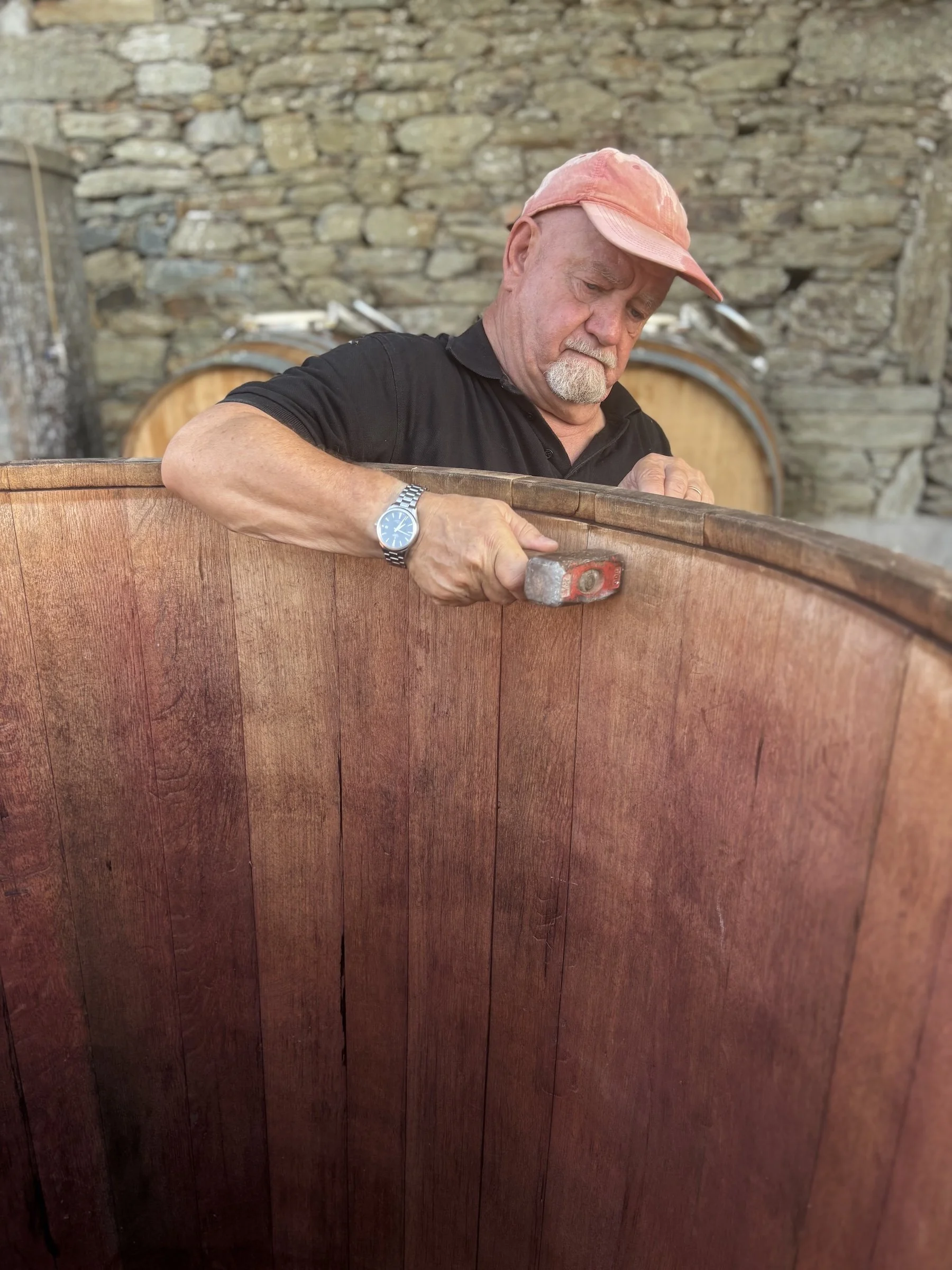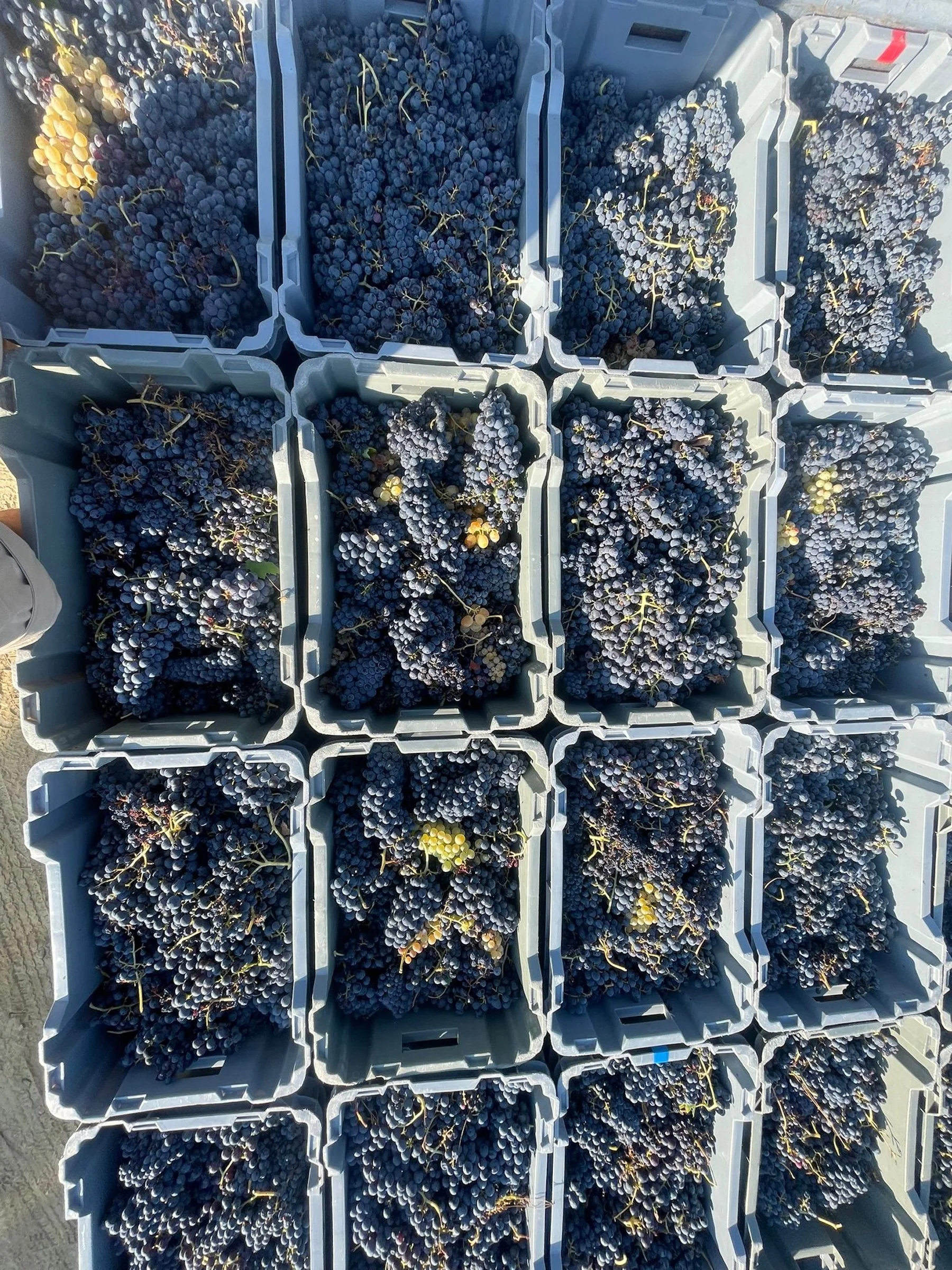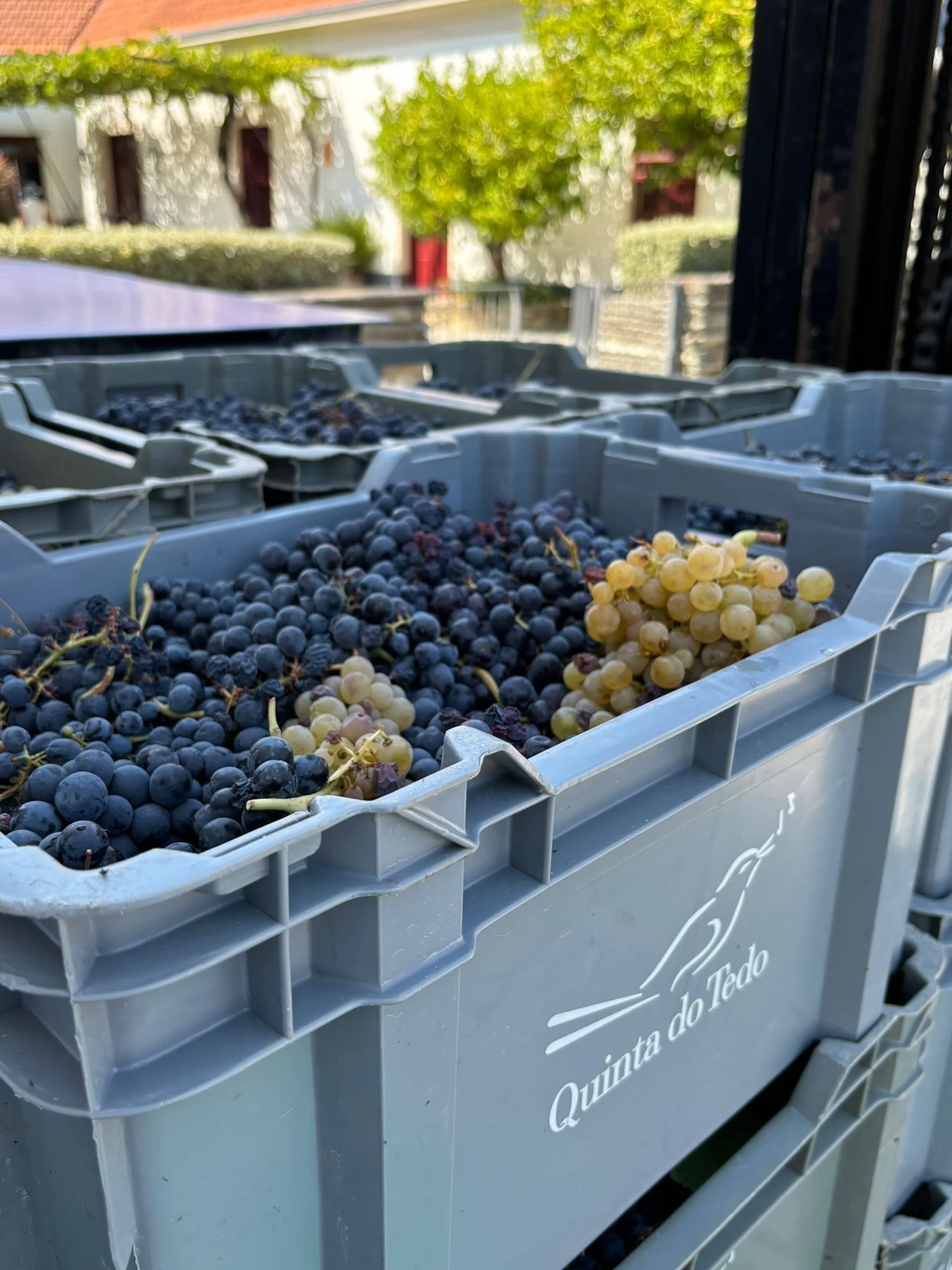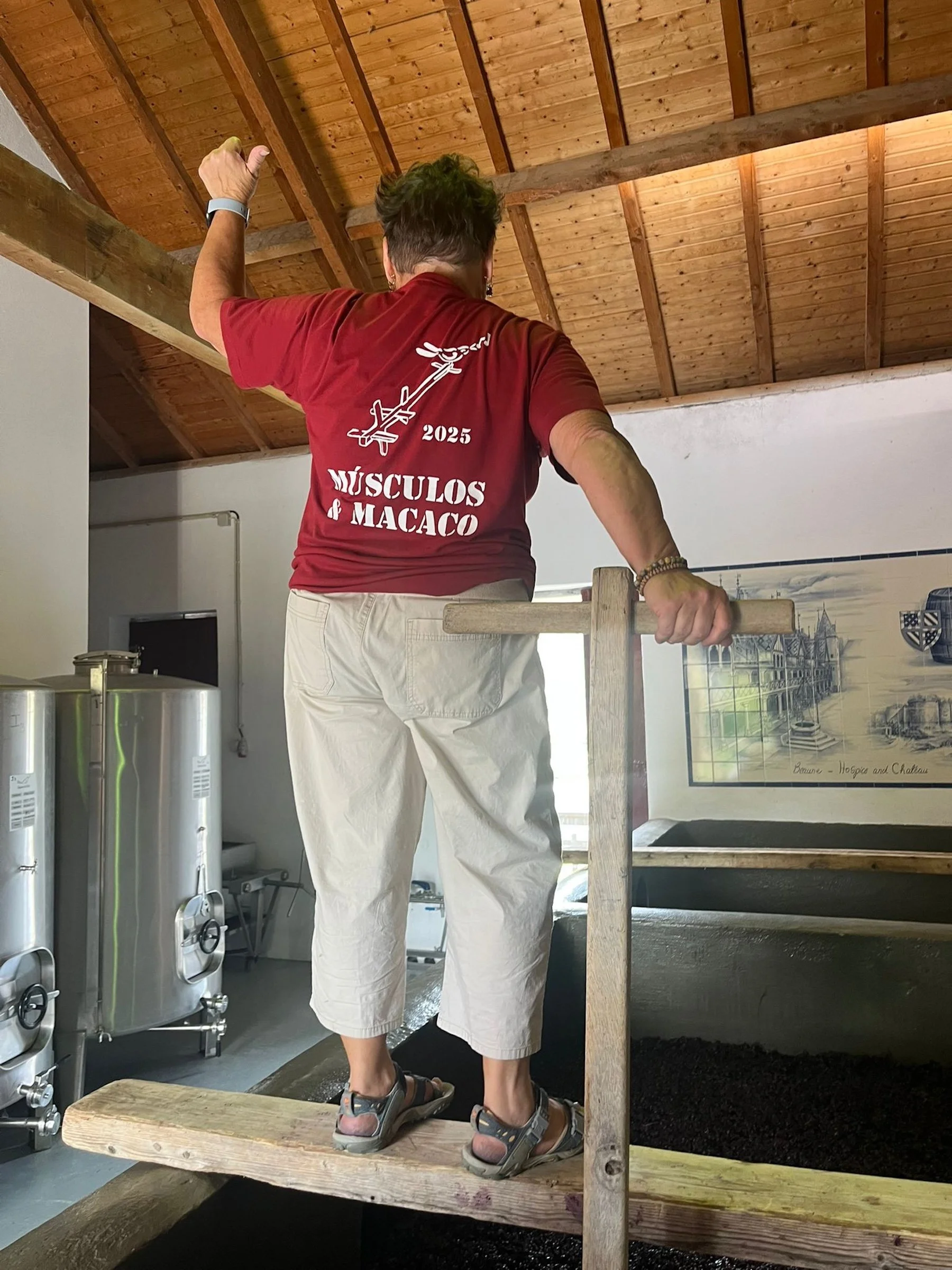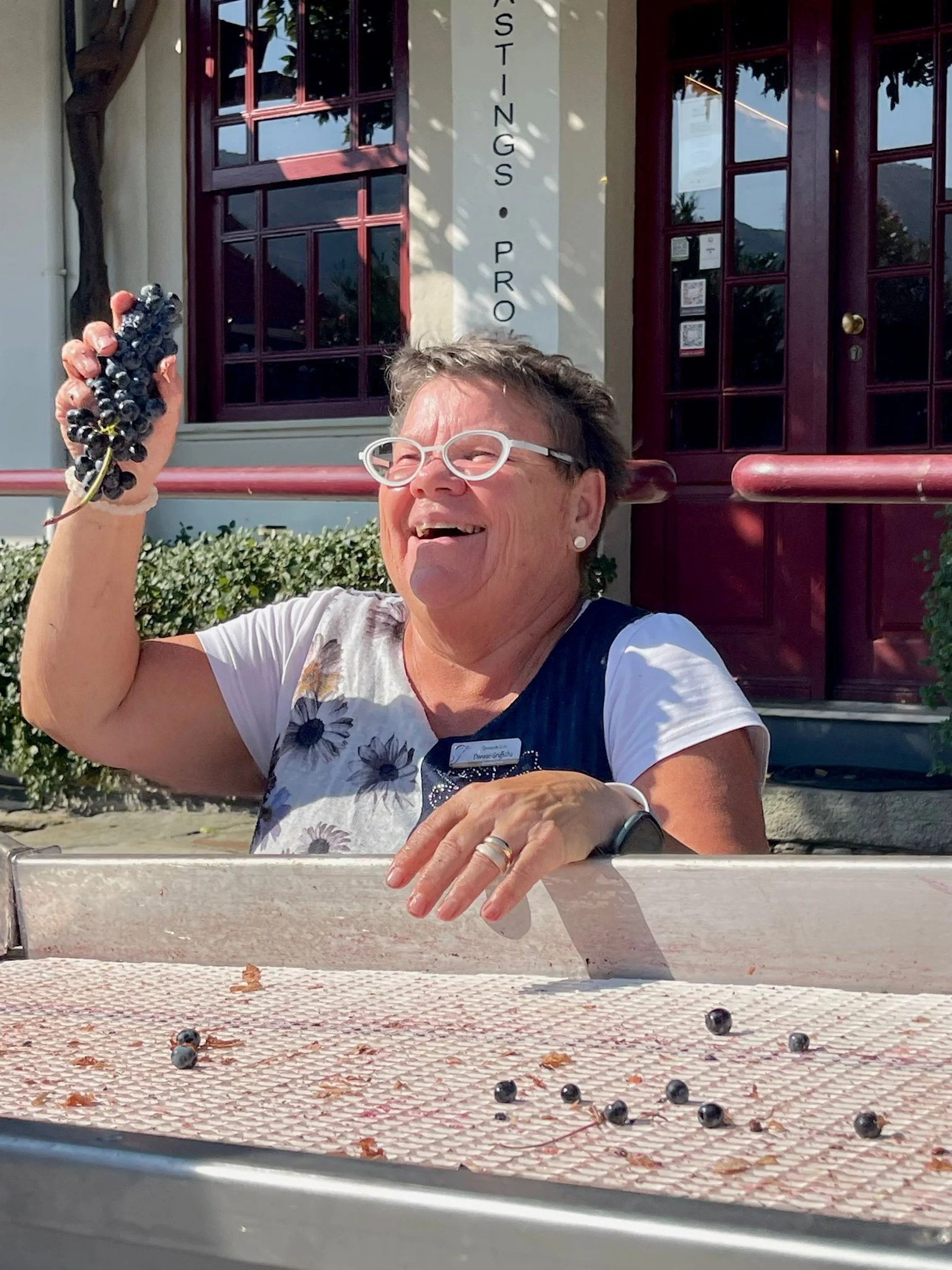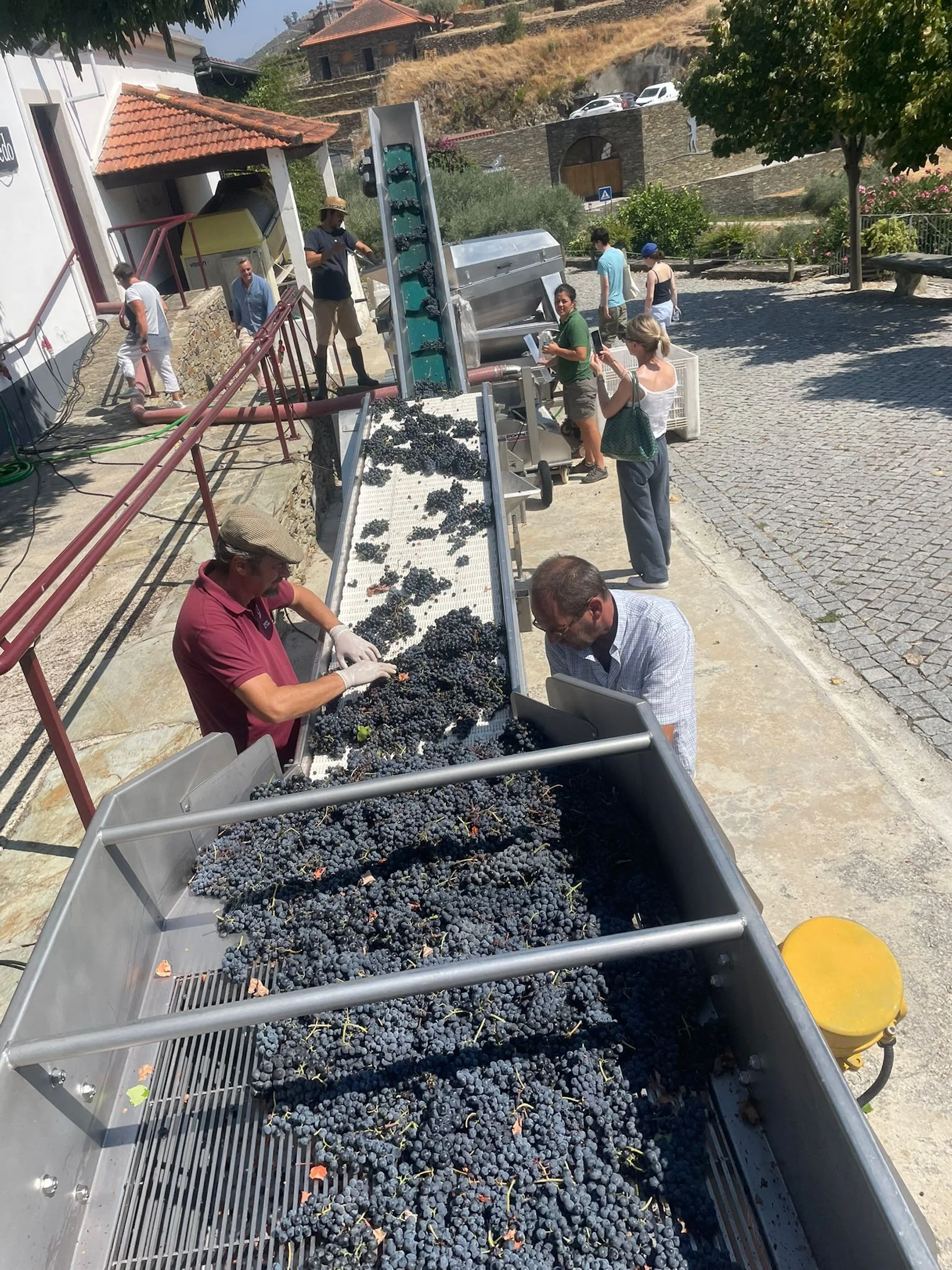Entering a promising 2025 harvest, I spoke to Quinta do Tedo’s Viticultural Manager Angelo Ribeiro about this year’s growing period, which he summed up as “challenging”.
I have written in past blogs that there is a saying about Douro Valley’s extreme climate: “3 months of winter and 9 months of hell”. However, in recent years the rainy season has shifted, starting later and with warmer temperatures.
Historically, the rainy season is between December and February, and sometimes with an early start in November, with colder temperatures. This year, between March and May most of the 50 cm (19 inches) annual precipitation was received. As a result, due to a later and warmer rainy season (aka more humidity), more organic treatments in the vineyards were needed to fight mildiou (downy mildew) and oidium (powdery mildew).
The later rainy season and the > 35C (95F) temperatures for most of July and August (luckily Vincent’s 70th birthday weekend saw a break, with fresher temperatures!) have made for a long and hot growing season, without rain since late May. The heat has broken this week as I write; we’re expecting 2 weeks of 25-30C weather, which should make for a nice and slow round off of maturation through harvest.
We cannot control the climate, but we can adapt to it in our 14 hectares (35 acres) of Classification A (comparable to a Grand Cru in Burgundy) vineyards at Quinta do Tedo, located in Douro Valley’s Cima Corgo. One way is through pruning.
We have traditionally used the cordon spur pruning system, but are navigating towards the guyot cane pruning system. The difference? The cordon system creates a permanent horizontal “arm” from which fruiting spurs grow each year, while the guyot system creates annual renewal canes, each year growing new wood.
The cordon system is more susceptible to disease, resulting in a vine with a shorter lifespan, due to the build up of permanent wood (the horizontal arm) with pruning wounds which are vectors for diseases to enter and disrupt the flow of sap through the vine. The guyot system has a lower trunk height and less permanent wood, and during spring vineyard treatments the product penetrates the vine better, thus less product is needed. The guyot system also increases foliage that allows for better sun protection, and decreases the distance water and nutrients need to flow between the roots which hydrate the vine, and the leaves which nourish the vine.
The vineyards in which we are implementing the guyot pruning system, notably our 2022 Bastardo and Touriga Franca plantings, are responding well. A drawback is that it takes time to train our Vineyard Team to implement the guyot system, as they have been pruning according to the cordon method for 30+ years. But that’s a “manageable” drawback, considering we have Angelo to lead and support them.
We are lucky that Douro Valley’s wide range of drought and heat-resistant grape varieties thrive here (over 130 (mostly indigenous) varieties grow in Douro Valley since centuries; 24 of those we grow at Quinta do Tedo and each lends unparalleled complexity to our Portos and Douro DOC wines). However, when temperatures increase > 35C (95F), the stomata in the vine’s leaves close to preserve hydration, which impedes photosynthesis and thus maturation. That's the flora's way to protect itself from extreme heat and dryness, only to resume when temperatures return to below 35C.
Quinta do Tedo's harvest 2025 kicked off in mid-August with our 3-year-old (and quick-to-ripen) Bastardo parcel. This is Odile's and Paolo's second year vinifying our Bastardo (Jura's Trousseau) into a light and innovative red wine, to complement our more structured and traditional Douro DOC wines; the results are positive. Team Tedo is forward thinking!
We harvested our old vine Seita parcel, growing at Quinta do Tedo’s highest 250 m (820 ft) elevation, on Monday 25 August for Port production - our first lagar was filled! Normally, old vines are later to ripen, but, thanks to its higher elevation, Seita’s maturation was not as impacted by the > 35C temperatures and thus was first to ripen this year. The quality is, as it is most years and for most old vines, very promising.
In Douro, it is rare that we have a horrible year (i.e. when it rains through harvest, or the grapes' never fully mature before the temperatures drop in autumn), but you never know what next year will bring. We remain proactive and determined to produce premium Portos and Douro DOC wines in our ever-changing climate.
Nearby Douro Valley, in Vila Real, is UTAD. This public university and research institute for the wine industry is a partner with ADVID, an entity that researches and advises local grape growers in soil conservation, viticulture techniques for our changing climate, and vineyard biodiversity management to promote sustainable viticulture in Douro Valley. Lucky Quinta do Tedo and other Douro Valley wineries to have these resources close by for support, as we look for solutions to react to climate change in a responsible and progressive way best adapted to our unique local terroir.
A few more harvest “postcards”:
All hands on deck as we prepare for harvest. Here, Vincent is making sure our open-top oak fermentation casks are water-tight before filling with red grapes to macerate and ferment.
I will never grow tired of beautiful grapes coming in; these from our Seita parcel are a field blend (with some whites mixed in, as is tradition in Douro's old vines).
This year's harvest t-shirt; Musculos & Macaco refers to muscles and the wooden apparatus we use to punch down the fermenting wine's cap. Vamos lá! Let’s go!
As always, harvest awaits you at Quinta do Tedo, where you can experience first-hand our small production in action, from grape to bottle, during this most exciting time of year.
Are you interested in a more formal harvest experience, full of fun, learning, good food and libations with the owners at Quinta do Tedo? Join our September 6th Harvest Experience grape-picking and foot-treading with Kay Bouchard, or our September 27th Winemaker For A Day blending Tawny Ports in our underground barrel gallery with Vincent Bouchard. Email info@quintadotedo.com for more details, and/or to sign up.
Boas vindimas to all!
~ Kay Bouchard






